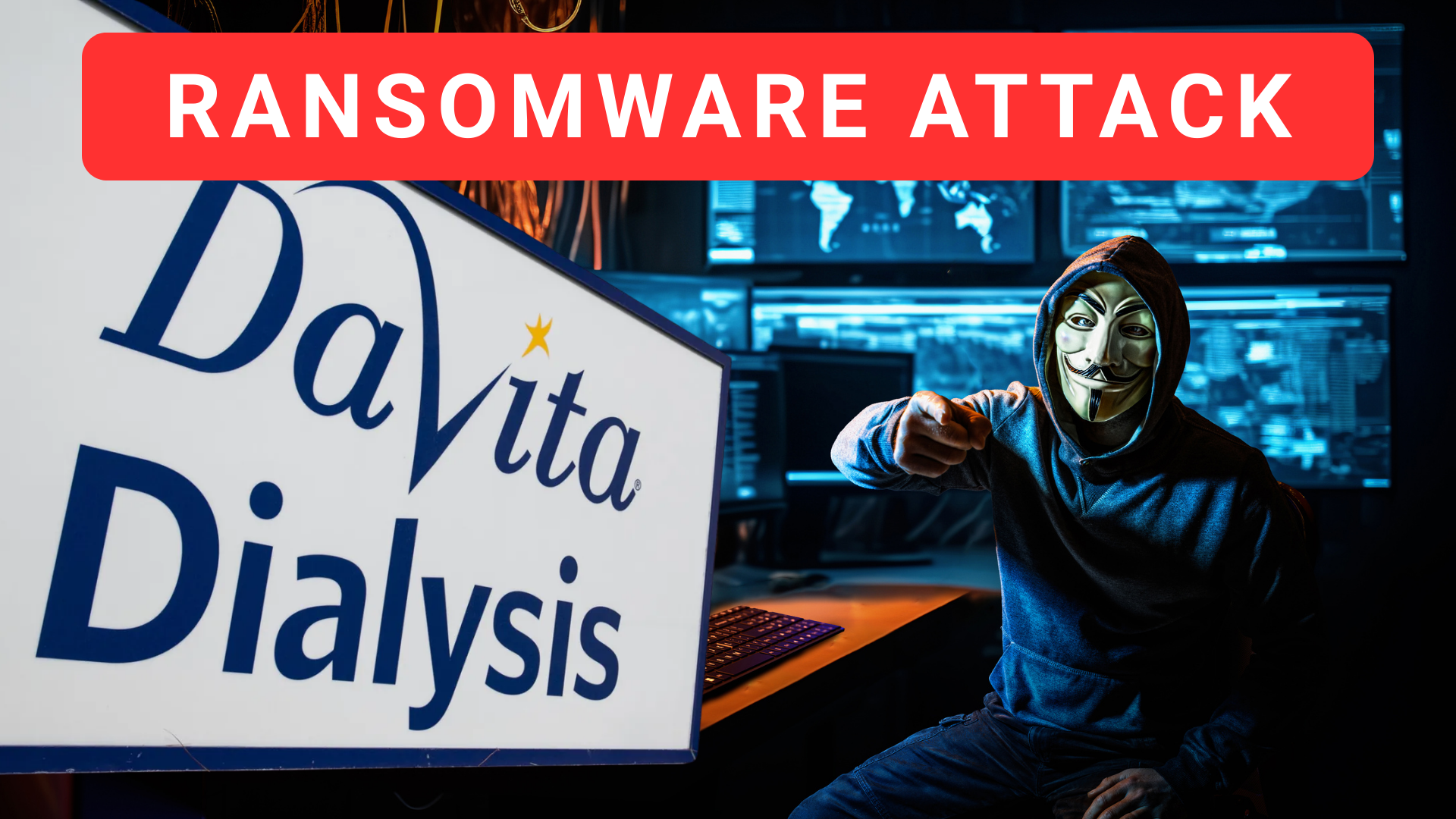When cybercriminals strike an organization that supports over 200,000 patients annually, it’s more than a breach—it’s a crisis that puts lives at risk.
That’s exactly what’s happening with DaVita, one of the largest dialysis providers in the U.S., now reeling from a major ransomware attack. With nearly 3,000 clinics worldwide, DaVita is a cornerstone of the American healthcare system. This attack isn’t just a data issue—it’s a direct threat to critical healthcare infrastructure.
What We Know So Far
DaVita confirmed that ransomware infiltrated and encrypted parts of its network, disrupting key operations. While the company quickly enacted contingency plans to maintain patient care, the ripple effect across their global network is still unfolding.
They’ve brought in external cybersecurity experts and are working with law enforcement, but the full scope remains unclear—especially regarding whether sensitive patient data was compromised. Given the nature of modern ransomware attacks, we suspect it was.
Why? Because today’s attackers don’t just encrypt—they exfiltrate. It's a tactic called double extortion, where data is stolen first, then encrypted to demand ransom. In many recent cases, the ransomware isn’t even deployed—the mere theft of sensitive information is enough to coerce payment.
This kind of breach has serious consequences, both for patients and the entire healthcare industry.
Healthcare: The #1 Target for Cybercrime
The 2024 IBM Security Report found that healthcare breaches cost more than any other industry, averaging a staggering $10.93 million per breach. DaVita’s attack will likely exceed this amount given its size.
Why is healthcare such a juicy target?
-
Lives are at stake – Downtime isn’t just costly; it can be deadly.
-
Legacy systems and poor security hygiene – Many healthcare providers are behind on cybersecurity updates.
-
Valuable data – Patient records include SSNs, payment info, medical histories—everything criminals want.
-
High pressure to pay – Because disruptions impact care, healthcare providers are more likely to pay ransoms quickly.
Cybercriminals know this—and exploit it without remorse.
DaVita’s Response: Swift but Limited
To their credit, DaVita initiated incident response protocols quickly:
-
Isolated infected systems
-
Engaged third-party cybersecurity teams
-
Notified law enforcement
-
Implemented interim solutions to maintain operations
Still, until a full forensic investigation is complete, questions remain:
-
Was patient data stolen?
-
How long were attackers inside before detection?
-
Could this have been prevented?
DaVita Isn't Alone: A Pattern Is Emerging
This attack follows a disturbing trend:
-
In 2023, Fresenius Medical Care—DaVita’s competitor—suffered a breach affecting 500,000 patients.
-
In early 2024, UnitedHealth’s tech division was hit, halting insurance claims processing and causing industry-wide delays and millions in damages.
These are not isolated incidents—they are signals of a broader crisis.
This Isn’t Just a Healthcare Problem—It’s a Business Problem
If you're running any business that handles sensitive data, take note. Healthcare may be the hardest hit, but no one is immune.
In fact, just the announcement of the DaVita breach caused a 4% drop in its stock price, dragging down the S&P 500 as investors reacted to the growing risks posed by cybercrime.
What Can Businesses Do Right Now?
No matter your industry, protecting your business starts with proactive action:
- Conduct a cybersecurity risk assessment
- Implement network segmentation
- Maintain real-time, off-site backups
- Deploy phishing-resistant MFA (Multi-Factor Authentication)
- Train employees regularly on security awareness
- Test your incident response plan under real-world scenarios
Most breaches stem from preventable issues—phishing emails, weak passwords, unpatched systems. It’s not always about zero-day exploits; often, it’s basic hygiene that saves the day.
Final Thoughts: Your Wake-Up Call Is Here
DaVita’s breach is a sobering reminder: cyberattacks are not just IT problems—they’re business problems, financial problems, and sometimes, life-or-death problems.
Don’t wait until your organization becomes the next headline.
At Xact Cybersecurity, we help businesses like yours identify vulnerabilities, harden defenses, and build resiliency before it’s too late. Start with a risk assessment—because knowing your weaknesses is the first step to securing your future.
🔗 Schedule Your Cybersecurity Risk Assessment Today
Stay safe. Stay sharp. Stay ready.



